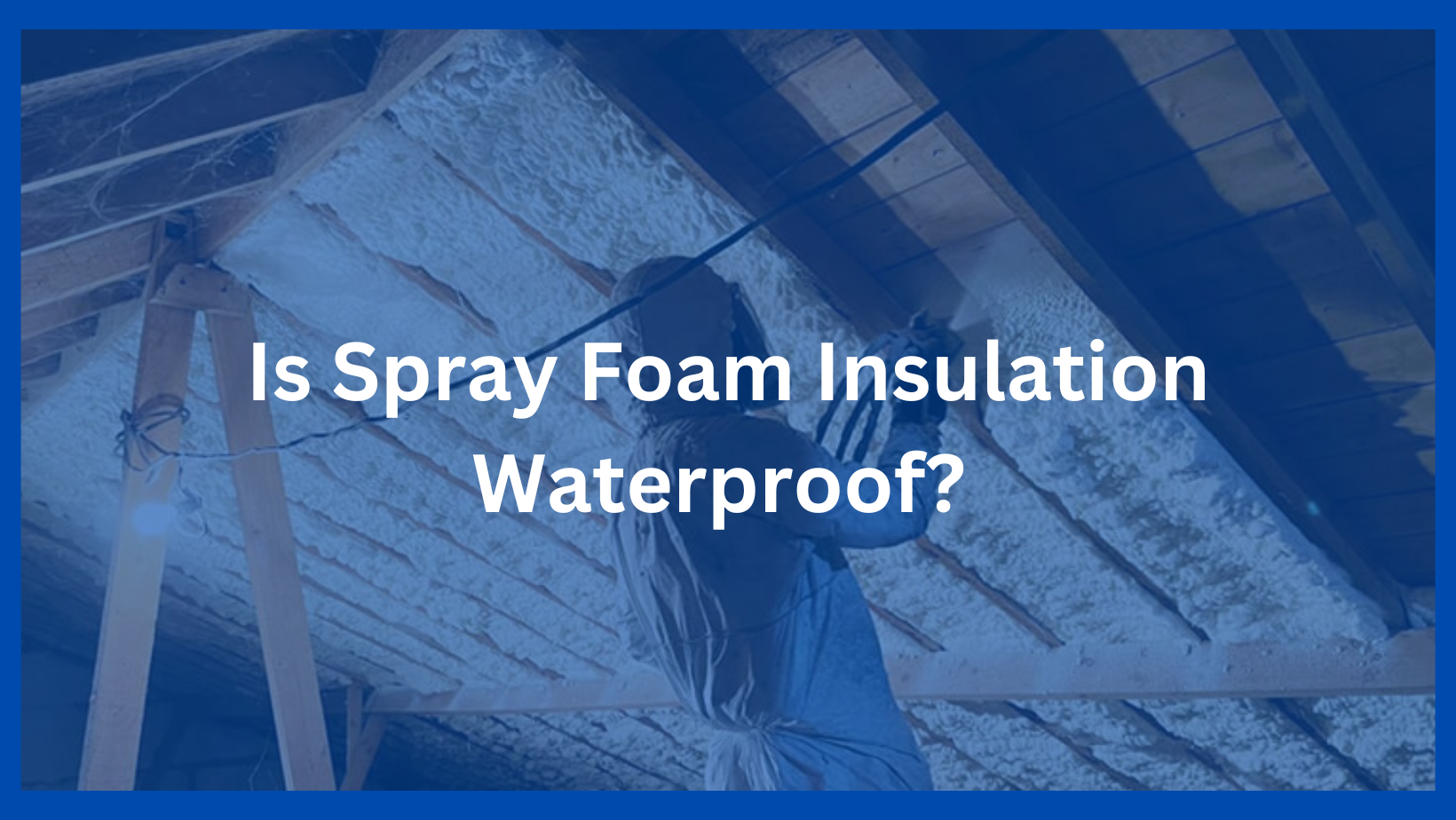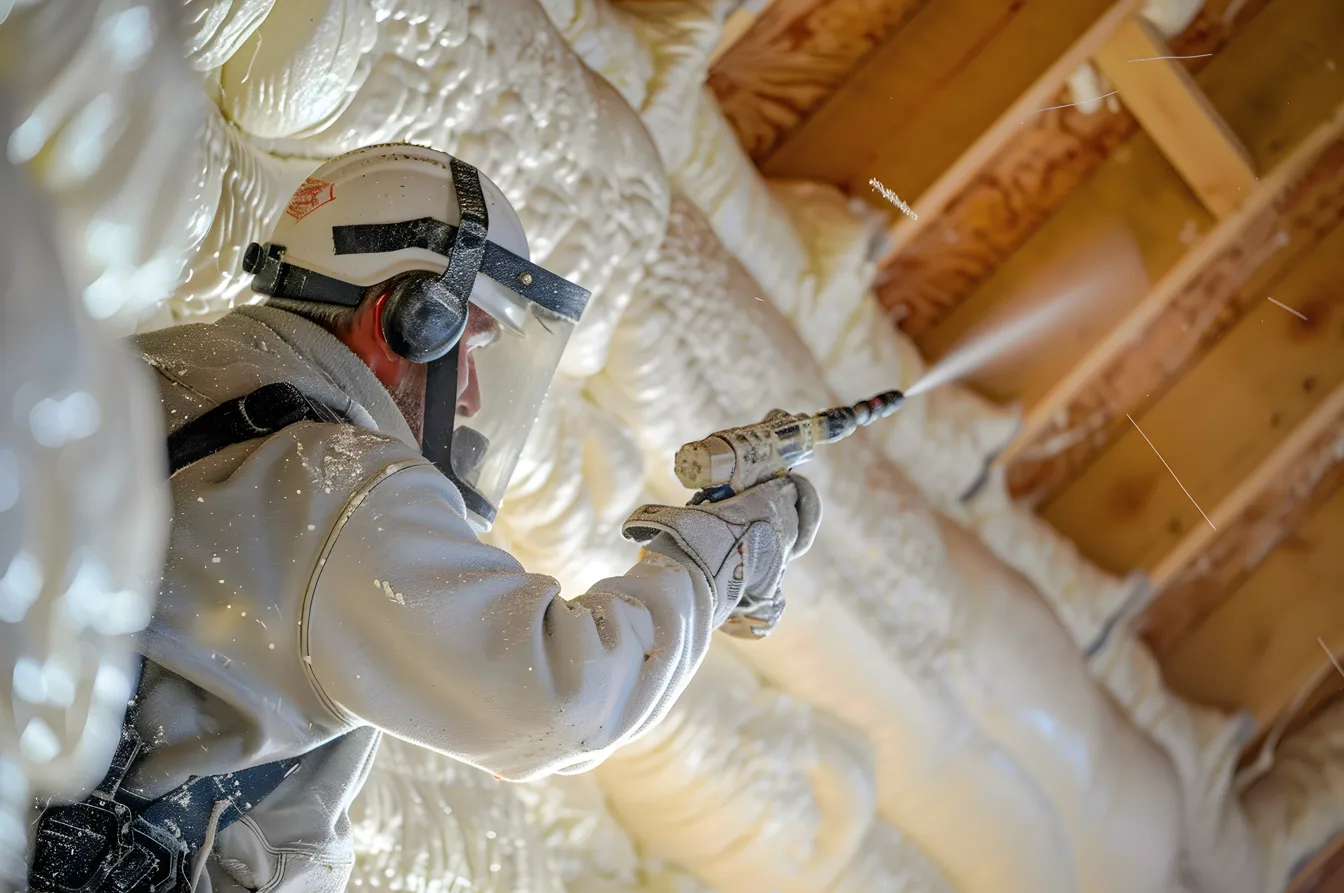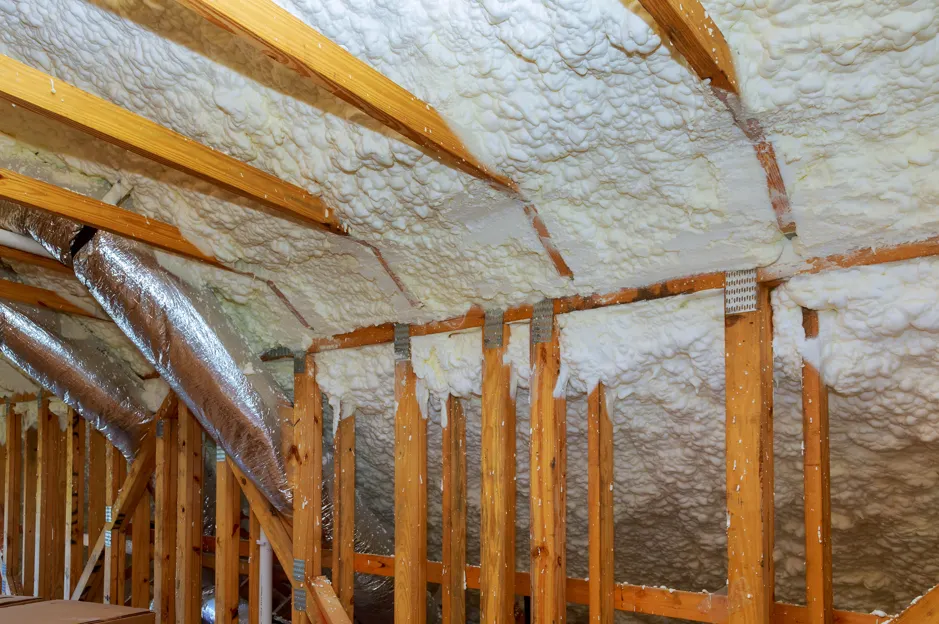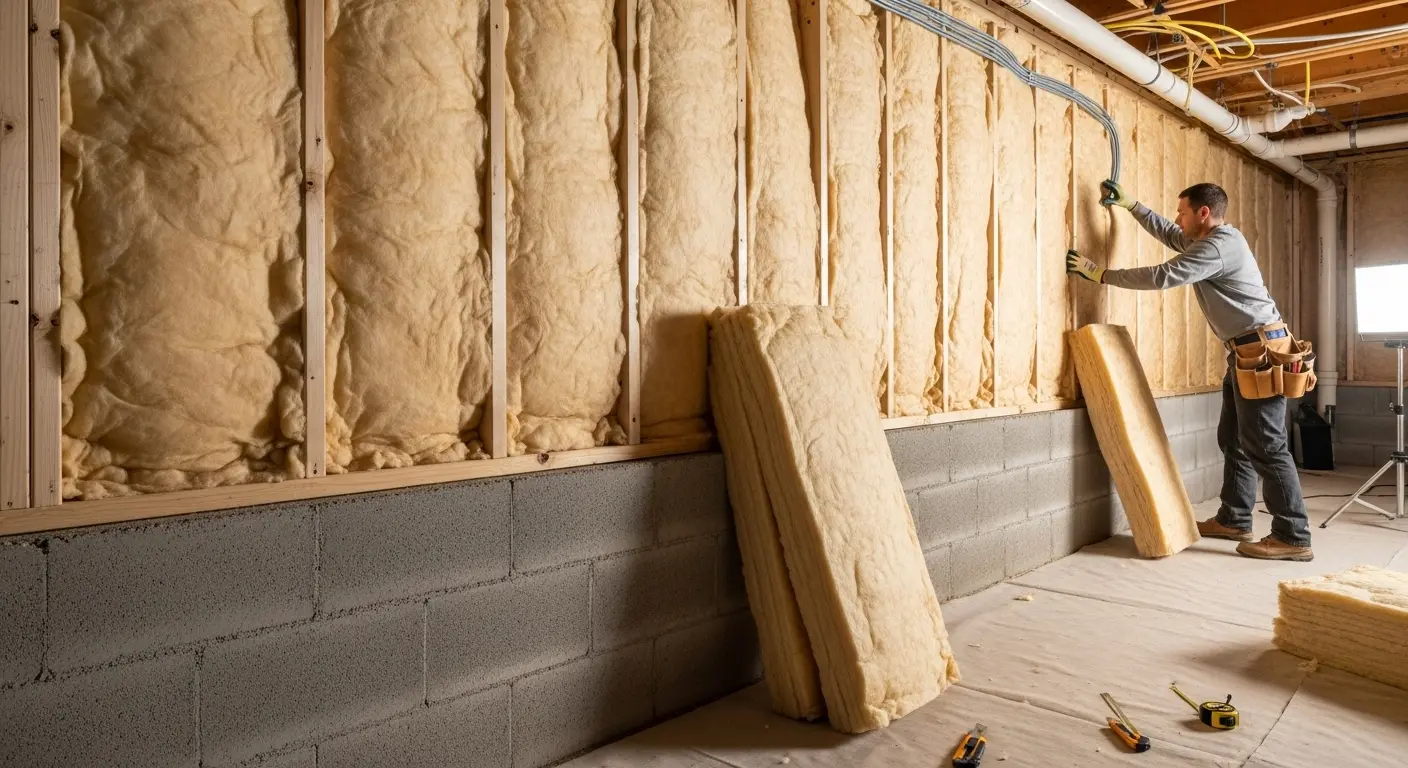Spray foam insulation has become popular as an effective solution for sealing cracks, reducing energy consumption, and providing long-term protection. However, regarding its waterproofing capabilities, there are different factors to consider. In this blog, we will look into whether spray foam is waterproof, its types, and the significance of waterproofing in other contexts.
Is Spray Foam Insulation Waterproof?
The answer to whether spray foam insulation is waterproof depends on the type of foam used. There are two main types: open-cell spray foam and closed-cell spray foam. Open-cell spray foam is not waterproof, as it is lighter and allows water penetration. On the other hand, closed-cell spray foam is denser and offers better resistance to the elements, including water. Therefore, closed-cell spray foam can be considered waterproof.
Importance of Waterproofing
Waterproofing protects homes from moisture-related issues like condensation and mold growth. While spray foam insulation may not be completely waterproof, combining it with proper waterproofing measures can enhance its effectiveness in preventing water damage. Understanding that waterproofing is essential in areas prone to heavy rainfall, flooding, or high humidity is necessary.
What Are the Benefits of Spray Foam Insulation?
Here are several benefits of Spray Foam Insulation:
Superior Insulation Performance
Spray foam insulation provides exceptional thermal insulation performance, minimizing heat transfer between the interior and exterior of a building. With high R-values (thermal resistance), it effectively reduces energy loss and lowers heating and cooling costs. The insulation’s ability to create an airtight seal helps maintain consistent indoor temperatures, ensuring greater comfort throughout the year.
Enhanced Energy Efficiency
Due to its excellent insulation properties, spray foam insulation contributes to increased energy efficiency in buildings. Reducing air leakage and heat transfer helps HVAC systems operate more efficiently, resulting in reduced energy consumption and lower utility bills. Over time, the energy savings can counterbalance the initial investment in spray foam insulation.
Air and Moisture Barrier
Spray foam insulation is an adequate air and moisture barrier, sealing gaps, cracks, and penetrations in walls, ceilings, and floors. Its expanding nature allows it to reach into tight spaces, creating a seamless insulation layer. Preventing air infiltration helps maintain indoor air quality, reduces allergens and pollutants, and minimizes moisture intrusion, allowing mold growth and structural damage.
Versatile Application
Spray foam insulation can be applied to various surfaces and areas, including walls, attics, crawl spaces, and rim joists. Its ability to conform and adhere to irregular shapes and surfaces makes it suitable for new and retrofitting buildings. Whether filling cavities, insulating around pipes and ductwork, or sealing around windows and doors, spray foam provides a versatile solution for insulation needs.
Soundproofing Qualities
In addition to thermal insulation, spray foam also offers soundproofing benefits. Its dense structure helps reduce noise transmission, creating a quieter indoor environment. By minimizing external noise disturbances, spray foam insulation enhances overall comfort and improves the acoustics within a building.
Longevity and Durability
Spray foam insulation is known for its long-lasting performance. Once correctly installed, it retains its insulating properties for an extended period without sagging, settling, or degrading. Unlike traditional insulation materials like fiberglass or cellulose, spray foam doesn’t deteriorate over time, providing a durable and reliable insulation solution.
Environmentally Friendly
Spray foam insulation contributes to environmental sustainability in multiple ways. Its energy-saving properties reduce greenhouse gas emissions by lowering energy consumption. Additionally, the insulation’s long lifespan minimizes the need for replacement, reducing waste. Some spray foam products use eco-friendly blowing agents with lower ozone depletion and global warming potential.
Waterproofing Spray Foam
Although closed-cell spray foam is more water-resistant than open-cell foam, it is not inherently waterproof. Additional measures can be taken to enhance spray foam insulation’s waterproofing capabilities. These may include applying waterproof coatings or sealants over the foam, ensuring proper surface preparation, and addressing any potential gaps or vulnerabilities in the application. Consulting with experts in insulation and waterproofing can provide valuable guidance on the best practices for achieving effective waterproofing with spray foam insulation.
Read More: What are the Different Types of Foam Insulation & Why Spray Foam is the Best Choice?
Conclusion
While open-cell spray foam insulation is not waterproof, closed-cell spray foam offers better resistance to water. However, even closed-cell spray foam requires additional waterproofing measures to ensure optimal performance in preventing water infiltration. The effectiveness of spray foam insulation in waterproofing applications depends on the specific context and the combination of appropriate techniques to address water-related concerns. When considering spray foam insulation for a project, consulting professionals who can guide the most suitable approach to achieve insulation and waterproofing objectives is essential.
Contact Foam Masters USA at 718-865-9647. Our trained, certified & insured professionals use a particular technique to ensure every crack & hole in your walls & ceilings is permanently filled.







